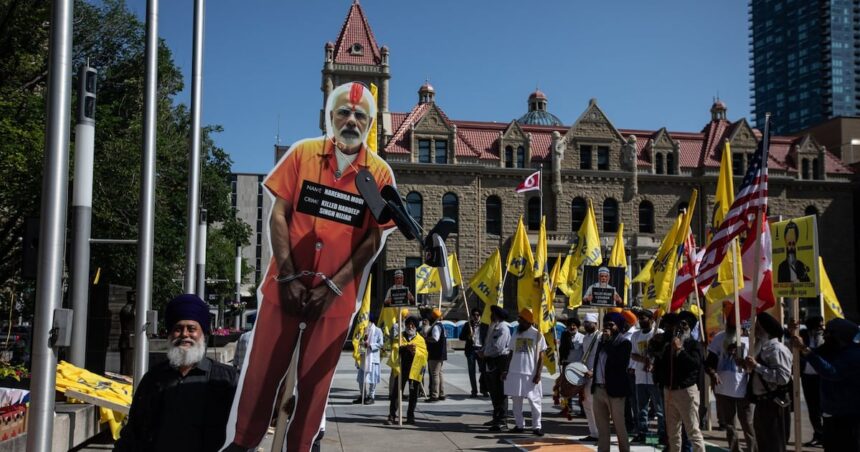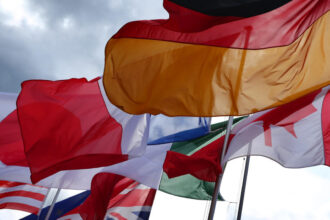The arrival of Indian Prime Minister Narendra Modi in Calgary for the G7 Summit has ignited a wave of passionate demonstrations across the city, as hundreds of Sikh protesters gathered downtown to voice opposition to what they describe as ongoing human rights violations in India. The protests, which began Tuesday morning, have quickly intensified with demonstrators carrying signs declaring Modi Not Welcome and Justice for Punjab.
“This isn’t simply about political disagreements—this is about documented human rights abuses that the international community continues to overlook,” said Harpreet Singh, one of the protest organizers. “Prime Minister Modi’s presence at the G7 represents, for many of us, a painful contradiction of Canada’s stated commitment to human rights globally.”
The demonstrations have remained largely peaceful despite growing numbers, with Calgary Police maintaining a visible presence around the Telus Convention Centre where many G7 events are being held. Authorities have established designated protest zones while working to maintain security for the high-profile international gathering.
Relations between Canada and India have deteriorated significantly over the past year following Prime Minister Justin Trudeau’s allegations that Indian government agents were potentially linked to the 2023 assassination of Sikh activist Hardeep Singh Nijjar in British Columbia. India vehemently denied these accusations, calling them “absurd” and subsequently expelling several Canadian diplomats.
Dr. Anita Sharma, professor of international relations at the University of Calgary, explained: “We’re witnessing the intersection of domestic politics and international diplomacy in real time. For the Sikh diaspora in Canada, especially in provinces like Alberta and British Columbia, these aren’t abstract foreign policy issues—they represent deeply personal concerns about family members and religious freedoms in Punjab.”
The timing of the protests coincides with the anniversary of Operation Blue Star, the 1984 Indian military operation at the Golden Temple in Amritsar that remains a source of profound grief and anger for many Sikhs worldwide. The historical context has added emotional weight to the demonstrations, with several speakers referencing ongoing investigations into alleged extrajudicial killings and detention of Sikh activists in India.
Economic considerations have added another layer of complexity to the diplomatic tensions. Two-way trade between Canada and India reached approximately $10 billion last year, with negotiations for a comprehensive economic partnership agreement now stalled amid the diplomatic fallout.
Calgary Mayor Jyoti Gondek acknowledged the significance of both the G7 Summit and the protests, stating: “Our city proudly welcomes the world’s leaders while simultaneously upholding the democratic right to peaceful demonstration. These are not contradictory values but rather complementary aspects of a healthy democracy.”
The G7 Summit organizers have reportedly made adjustments to Modi’s schedule, with certain public appearances modified or relocated to accommodate security concerns. However, bilateral meetings between Modi and other world leaders, including those from the United States, Japan, and the European Union, remain on the agenda.
As the summit continues through Thursday, protest organizers have indicated plans for sustained demonstrations. “We will remain visible and vocal throughout the Prime Minister’s visit,” said Gurpreet Kaur, another protest coordinator. “Our community deserves accountability and transparency regarding Canada’s ongoing diplomatic engagement with India.”
As these events unfold against the backdrop of global economic discussions at the G7, one question remains particularly pertinent: How will Canada navigate the delicate balance between addressing legitimate human rights concerns while maintaining necessary diplomatic and economic relations with India, the world’s most populous democracy?


















